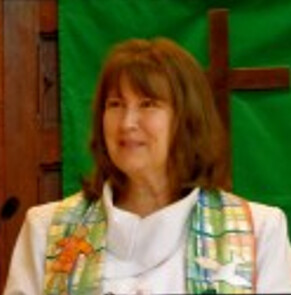Image


Lenten suppers often consist of a vegetarian soup, bread, and water in order to maintain the season's focus on abstinence, sacrifice, and simplicity.--Katrin Gilger creative commons license
For non Christians or those who are nominally Christian but not actively practicing a religion, the rituals and even the existence of Lent can be puzzling, particularly the Roman Catholic practices associated with Ash Wednesday.

That tradtition, and many other elements of Lenten practice, appear in many religious traditions globally and mark a time for humbleness and reflection.
We asked members of the Christian clergy in town if they would share their views on what Lent means, especially in the 21st Century, three responded, Rev. Jacob Juncker of the Franklin Methodist Church, Rev. Kathy McAdams of St. John’s Episcopal Church, and Rev. Doreen Oughton of Franklin Federated Church. We also asked Rabbi Alpert to compare or contrast Lent with Jewish practices, however, Alpert was unavailable due to travels. Below are the three responses.
I am happy to offer a few thoughts on the season of Lent for us. These thoughts may represent some Christian theology, but know that I don't speak for Christianity, nor for Franklin Federated Church, just for myself as a person of faith doing the best I can.
I see Lent as a period of intentional seeking of God and God's ways. It involves identifying and setting aside some of the obstacles to a deep connection with God. It may involve some sort of "fast" -- giving up something -- as an acknowledgement that an over-attachment to comforts or pleasures can keep us from reaching for God. We are invited to get clarity about what we really need and allow our "wants" to be guided by God. As Jesus responds to his tempter in the wilderness, "One does not live by bread alone, but by every word that comes from the mouth of God." The Lenten journey may involve taking on a new spiritual practice - a sacrifice of time in a way - and redirecting that time toward a Godly endeavor. It may be a meditation practice, or writing notes of appreciation or gratitude to people, keeping a gratitude journal or a prayer journal, studying sacred texts, joining a prayer circle. Lent often includes intentional acts of charity - giving of one's resources and/or time as a way of thinking more of others instead of our usual self-centeredness. It is also a way to demonstrate our trust in the provision of God.
I think such Lenten practices can be useful for anyone, even if they don't believe in God. To be intentional about discovering and adjusting the places one has gotten off course in their life, or identifying the barriers to becoming the person they'd like to be, or remembering that one is not an island, but part of something larger, and the well-being of all impacts the well-being of any individual - such intentionality and willingness to reflect and grow can only be of benefit, in my opinion.
May the blessings of Lent be yours.
Peace,
Rev. Doreen Oughton
Pastor, Franklin Federated Church
* * * * * *

I think the best explanation is from the Ash Wednesday liturgy in our Book of Common Prayer:
Dear People of God: The first Christians observed with great
devotion the days of our Lord's passion and resurrection, and
it became the custom of the Church to prepare for them by a
season of penitence and fasting. This season of Lent provided
a time in which converts to the faith were prepared for Holy
Baptism. It was also a time when those who, because of
notorious sins, had been separated from the body of the faithful
were reconciled by penitence and forgiveness, and restored to
the fellowship of the Church. Thereby, the whole congregation
was put in mind of the message of pardon and absolution set
forth in the Gospel of our Savior, and of the need which all
Christians continually have to renew their repentance and faith.
I invite you, therefore, in the name of the Church, to the
observance of a holy Lent, by self-examination and repentance;
by prayer, fasting, and self-denial; and by reading and
meditating on God's holy Word. And, to make a right beginning
of repentance, and as a mark of our mortal nature
Peace,
Kathy McAdam
* * * * * *

Lent is a 40-plus day season of preparation for the celebration of Easter. It begins on Ash Wednesday and includes 40 days of fasting and prayer and six Sundays. The season of Lent was used by the early church to 1) prepare converts for baptism; and, 2) bring back into the community those persons who had committed serious sins and had separated themselves from the community faith. These persons were reconciled to the community through penitence and forgiveness. In the modern church, Lent continues to be a time of self-examination, penitence, and forgiveness in preparation for Easter. It is an opportunity for Christians to intentionally set aside time for prayer, fasting, meditation, and contemplation—to intentionally tend to their relationship with God. Whether one gives up meat on Fridays, forgoes eating chocolate, or picks up the practice of reading a daily devotional, Christians are encouraged, through their chosen Lenten disciplines, to grow closer to God as they prepare to celebrate, on Easter, a God who will endure death and go to hell and back to be with us and redeem the world.
Franklin UMC worships every Sunday at 10am in the sanctuary, via Google Meet, and live streaming on YouTube. We are also offering a Lenten Study on Wednesday evenings at 7pm. We meet via Google Meet. Persons can find links by going to the church website or by contacting me via email.
Peace.
Jacob
{Editor’s Note: Thanks to all three for taking the time to share thought-provoking ideas and insights into this particular Christian practice!]